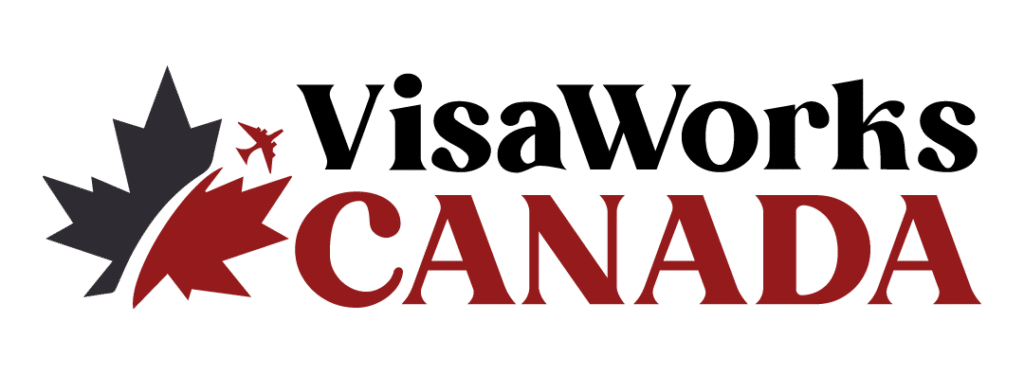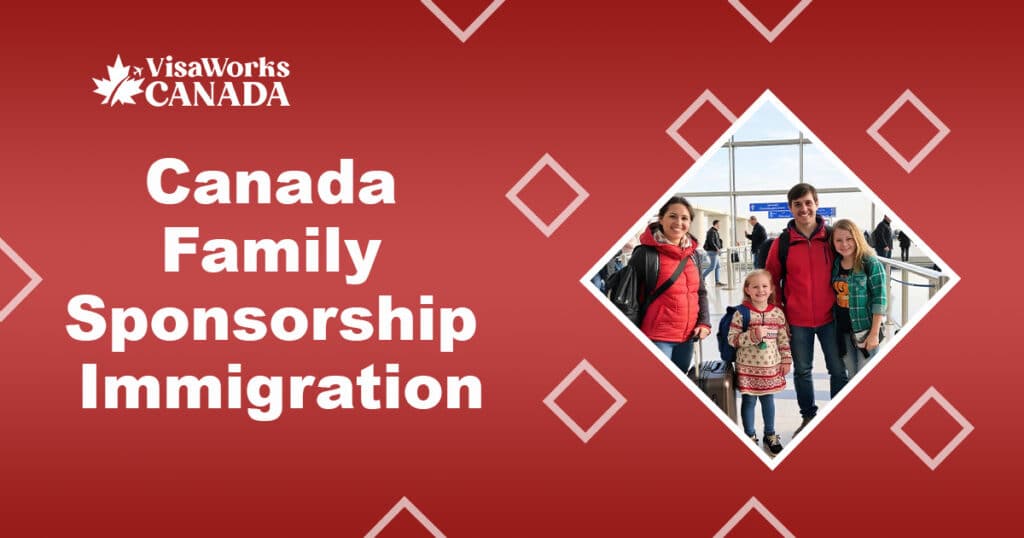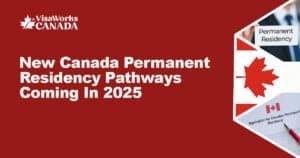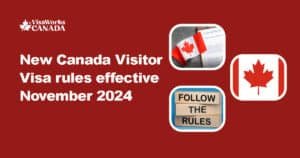Family sponsorship is a cornerstone of Canada’s immigration policy, allowing citizens and permanent residents to bring their loved ones to join them in this country. It is a process that not only strengthens family bonds but also contributes to the cultural and economic fabric of Canada. This article will guide you through the comprehensive process of sponsoring your family members to immigrate to Canada.
Table of Contents
ToggleUnderstanding how family sponsorship works is crucial for anyone considering this pathway. Whether you are looking to bring your spouse, children, parents, or other relatives to Canada, this guide will provide detailed insights into the eligibility requirements, application process, and common challenges you may encounter. Let’s begin by exploring the fundamentals of family sponsorship.
2. Understanding Family Sponsorship
Family sponsorship is a legal process that allows Canadian citizens and permanent residents to sponsor certain relatives to come to Canada as permanent residents. The primary goal is to reunite families by enabling them to live together in Canada.
The legal framework governing family sponsorship in Canada is detailed and specific. It ensures that both the sponsor and the sponsored individuals meet the necessary criteria. This process is regulated by Immigration, Refugees, and Citizenship Canada (IRCC), which sets strict guidelines to maintain the integrity of the program.
3. Types of Family Sponsorship Programs
Spousal and Common-Law Partner Sponsorship
Spousal and common-law partner sponsorship is one of the most common pathways. If you are a Canadian citizen or permanent resident, you can sponsor your spouse or common-law partner to live with you in Canada. This category also includes same-sex partners, ensuring inclusivity in the immigration process.
The process for spousal sponsorship can be divided into in-Canada and out-of-Canada applications. The choice depends on whether your spouse or partner is currently residing in Canada or abroad. Understanding the differences between these two applications is essential for a smooth process.
Parent and Grandparent Sponsorship
Parent and grandparent sponsorship allows you to bring your parents and grandparents to Canada as permanent residents. This program is highly competitive, with a lottery system determining who can apply each year.
Alternatively, the Super Visa is another option for parents and grandparents, allowing them to stay in Canada for extended periods. This visa is a temporary solution but offers flexibility while waiting for the permanent residency process.
Dependent Child Sponsorship
Dependent children can also be sponsored to come to Canada. This category includes biological and adopted children who meet specific age and dependency criteria. It’s crucial to provide thorough documentation to prove the relationship and the child’s dependency status.
Special cases, such as adopted children, may require additional legal considerations. It’s important to understand these nuances to ensure a successful application.
Sponsorship of Other Relatives
In some cases, you may be eligible to sponsor other relatives, such as siblings, nieces, nephews, or grandchildren. However, this category has more restrictions and specific eligibility requirements.
Understanding who qualifies as “other relatives” and navigating the application process can be complex. Case studies of successful sponsorships can provide valuable insights into how to proceed.
4. Eligibility Requirements for Sponsors
To sponsor a family member, you must meet specific eligibility criteria. First and foremost, you must be at least 18 years old and a Canadian citizen or permanent resident. Your residency status is critical, as it ensures that you are legally allowed to sponsor a relative.
Financial stability is another key requirement. You must demonstrate that you have the financial means to support your sponsored family member. This includes providing proof of income that meets the minimum necessary income threshold set by the Canadian government.
In addition to financial requirements, your criminal record and previous sponsorship history will be reviewed. Any history of violent crime or sponsorship default can impact your eligibility. Ensuring that your record is clear and understanding the legal implications of your past actions are essential steps in the process.
5. Eligibility Requirements for Sponsored Family Members
Your sponsored family members must also meet specific criteria to be eligible for immigration to Canada. The most crucial aspect is proving the relationship between the sponsor and the sponsored individual. This requires thorough documentation, such as marriage certificates, birth certificates, or adoption papers.
Health and security checks are mandatory for all sponsored individuals. They must undergo a medical examination to ensure they do not pose a health risk to the Canadian public. Additionally, a criminal background check will be conducted to assess their admissibility.
Finally, financial dependency must be established, particularly for dependent children or other relatives. This means demonstrating that they rely on you for financial support and that they do not have sufficient means to support themselves independently.
Explore Our Services
6. The Application Process
The application process for family sponsorship can be complex, but breaking it down into steps can simplify it. First, you need to gather all required forms and documentation. This includes sponsorship forms, relationship proof, financial statements, and medical reports.
Completing the application package accurately is crucial. Any errors or omissions can result in delays or rejection. Take your time to review all documents and ensure they meet the IRCC’s requirements.
Once your application is complete, you must submit it according to the IRCC’s guidelines. Pay attention to submission deadlines, as missing them can significantly delay the process. After submission, you will receive updates on your application’s status, and it’s important to respond promptly to any requests for additional information.
7. Financial Support Obligations
As a sponsor, you have a legal obligation to financially support your sponsored family member. This is known as the sponsorship undertaking, a binding agreement between you and the Canadian government.
The duration of financial support varies depending on the relationship and the program under which you are sponsoring. For example, spousal sponsorship requires support for three years, while parent and grandparent sponsorship requires support for 20 years.
It’s important to understand the financial implications of sponsorship default. If you fail to provide the agreed-upon support, the government may hold you responsible for repaying any social assistance your sponsored relative receives. Ensuring that you meet the income thresholds and providing proof of your financial stability is crucial to avoid these consequences.
8. Spousal and Common-Law Partner Sponsorship
Sponsoring a spouse or common-law partner is a deeply personal and emotional process. The eligibility criteria for this category include proving the legitimacy of your relationship. This may involve providing evidence such as joint bank accounts, shared leases, or photographs together.
In-Canada applications are processed differently from out-of-Canada applications. If your partner is already in Canada, they may be eligible for an open work permit while their application is being processed. Understanding these nuances can help you choose the best option for your situation.
Processing times for spousal sponsorship vary, but the government prioritizes these applications. Despite this, delays can still occur, so it’s important to prepare your application thoroughly and follow up regularly.
9. Parent and Grandparent Sponsorship
Parent and grandparent sponsorship is a highly sought-after program with limited spots available each year. The application process begins with an expression of interest, after which the government randomly selects applicants through a lottery system.
Once selected, you must submit a complete application package, including proof of relationship, financial documents, and medical exams. Given the competitive nature of this program, it’s crucial to ensure that your application is flawless.
If you’re not selected in the lottery, consider the Super Visa as an alternative. This visa allows parents and grandparents to stay in Canada for up to two years at a time, with multiple entries over a ten-year period. It’s a flexible option while waiting for permanent residency.
10. Sponsoring Dependent Children
Dependent children, whether biological or adopted, can be sponsored to join you in Canada. The eligibility criteria for dependent children include age limits and financial dependency. Children must be under 22 years old and not married or in a common-law relationship.
The application process requires proof of the parent-child relationship, such as birth or adoption certificates. Additionally, medical examinations and security checks are necessary to ensure the child’s admissibility to Canada.
Adoption cases may involve additional legal steps, particularly if the adoption took place abroad. It’s important to work with legal professionals to navigate these complexities and ensure that all requirements are met.
11. Sponsorship of Other Relatives
Sponsoring other relatives, such as siblings, nieces, or nephews, is possible but comes with more restrictions. To qualify, the sponsored relative must meet specific criteria, such as being orphaned or having no other family members in their home country.
The application process for this category is similar to other family sponsorships but requires additional documentation to prove eligibility. Understanding the limitations and exceptions in this category is essential to avoid complications.
Case studies of successful sponsorships can provide valuable insights into the process. These examples highlight the importance of thorough documentation and meeting all eligibility criteria.
12. Processing Times and Delays
Processing times for family sponsorship applications vary depending on the category and the volume of applications. Spousal sponsorships generally have shorter processing times, while parent and grandparent applications may take longer due to the lottery system.
Several factors can contribute to delays, including incomplete applications, missing documents, or the need for additional background checks. To expedite the process, ensure that your application is complete and accurate before submission.
If your application is refused, you have the right to appeal the decision. Understanding the appeals process and the grounds for refusal can help you prepare a strong case if necessary.
13. Common Challenges in Family Sponsorship
Family sponsorship can be a complex process, with several challenges that applicants may face. One of the most common issues is proving the genuineness of the relationship, particularly in spousal and common-law partner sponsorships. Providing comprehensive and consistent evidence is key to overcoming this hurdle.
Financial barriers can also pose challenges, especially for sponsors who must meet specific income thresholds. If you’re concerned about meeting these requirements, consider consulting a financial advisor or immigration consultant for guidance.
Health and medical inadmissibility are other potential obstacles. If a sponsored family member has a serious medical condition, it could impact their eligibility. Understanding the legal options and preparing a strong case can help address this issue.
14. Legal and Ethical Considerations
Navigating the legal aspects of family sponsorship can be challenging, which is why many applicants seek the help of immigration lawyers or consultants. These professionals can provide valuable guidance and ensure that your application meets all legal requirements.
Ethical issues, such as sponsorship fraud, are taken seriously by the Canadian government. Ensuring that all information provided is truthful and accurate is crucial to maintaining the integrity of the process.
If disputes arise during the sponsorship process, legal recourse is available. Understanding your rights and the steps to resolve conflicts can help you navigate these situations effectively.
15. Impact of COVID-19 on Family Sponsorship
The COVID-19 pandemic has significantly impacted the family sponsorship process. Temporary changes to sponsorship requirements were introduced to address the challenges posed by the pandemic, including extended processing times and travel restrictions.
Virtual processing and interviews have become more common, allowing the immigration process to continue despite physical distancing measures. These changes have introduced new norms in the immigration landscape, with potential long-term implications.
As the world adjusts to the post-pandemic reality, it’s important to stay informed about ongoing changes to the sponsorship process. Keeping up with the latest updates can help you navigate any new challenges that may arise.
16. Case Studies and Real-Life Examples
Real-life examples and case studies can provide valuable insights into the family sponsorship process. Success stories highlight the positive impact of sponsorship on families and communities. These examples demonstrate the importance of thorough preparation and attention to detail.
Lessons learned from sponsorship application refusals can also be instructive. Understanding where others went wrong can help you avoid similar pitfalls in your own application.
Case analysis of complex sponsorship scenarios offers a deeper understanding of the challenges that may arise. These examples underscore the importance of seeking professional guidance when navigating difficult cases.
17. Alternative Immigration Options for Families
While family sponsorship is a popular pathway, there are alternative immigration options available for families. Provincial Nominee Programs (PNP) offer opportunities for family members to immigrate to specific provinces in Canada.
Humanitarian and Compassionate Grounds applications provide another option for individuals who do not meet the standard criteria for family sponsorship. These applications are considered on a case-by-case basis, with a focus on the unique circumstances of the applicant.
Comparing family sponsorship with other immigration streams can help you determine the best pathway for your family. Understanding the pros and cons of each option is essential for making an informed decision.
18. Maintaining Permanent Residency and Citizenship
Once your family members have successfully immigrated to Canada, it’s important to understand the rights and responsibilities of permanent residency. Sponsored individuals must meet residency requirements to maintain their status in Canada.
The pathway to Canadian citizenship is open to permanent residents who meet specific criteria. Understanding the steps to citizenship and the benefits of becoming a Canadian citizen can help your family integrate into Canadian society.
If a sponsored person decides to leave Canada, it’s important to know the implications for their permanent residency status. Ensuring that they meet the necessary requirements can prevent any issues with their status.
19. Recent Changes and Future Trends in Family Sponsorship
The family sponsorship landscape is constantly evolving, with recent policy changes impacting the process. Staying informed about these changes is crucial for anyone considering sponsorship.
Future trends in Canadian immigration suggest a continued focus on family reunification, with potential improvements to streamline the process. Government initiatives aim to reduce processing times and make the application process more efficient.
Predicting the future of family sponsorship policies can help you prepare for potential changes. Staying ahead of the curve ensures that you’re ready to navigate any new developments in the immigration process.
20. Conclusion
Family sponsorship is a vital component of Canada’s immigration system, providing opportunities for families to reunite and build a life together in this diverse and welcoming country. Understanding the process, eligibility requirements, and potential challenges is essential for a successful application.
At VisaWorks Canada Ltd., we are dedicated to helping you navigate the complexities of the family sponsorship process. From expert visa services to comprehensive guidance on permanent residency, study visas, and business ventures in Canada, we’re here to help you at every step of your journey. Contact us now for personalized assistance and take the first step towards reuniting your family in Canada.
FAQs
1. Who can sponsor a family member to immigrate to Canada?
Canadian citizens and permanent residents who meet specific eligibility criteria, such as age and financial stability, can sponsor certain relatives to immigrate to Canada.
2. How long does the family sponsorship process take?
Processing times vary depending on the type of sponsorship, but it typically ranges from a few months to several years. Delays can occur due to incomplete applications or additional background checks.
3. Can I sponsor my sibling to come to Canada?
In some cases, you can sponsor a sibling if they meet specific eligibility criteria, such as being orphaned or having no other family members in their home country.
4. What happens if my sponsorship application is refused?
If your application is refused, you have the right to appeal the decision. Understanding the reasons for refusal and preparing a strong case can improve your chances on appeal.
5. What is a Super Visa, and how does it differ from family sponsorship?
A Super Visa is a temporary visa that allows parents and grandparents to stay in Canada for up to two years at a time. Unlike family sponsorship, it does not grant permanent residency but offers flexibility while waiting for permanent status.








